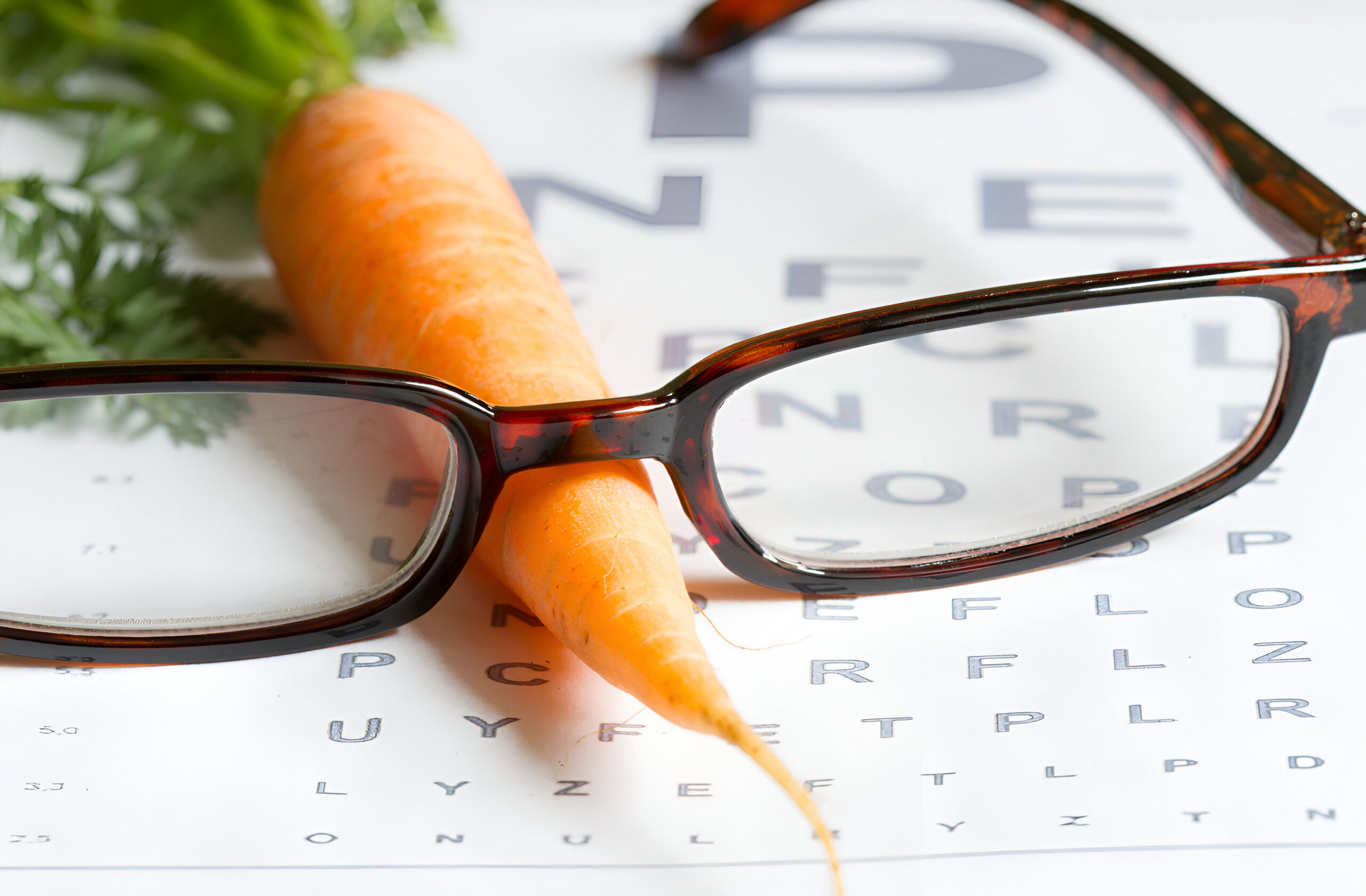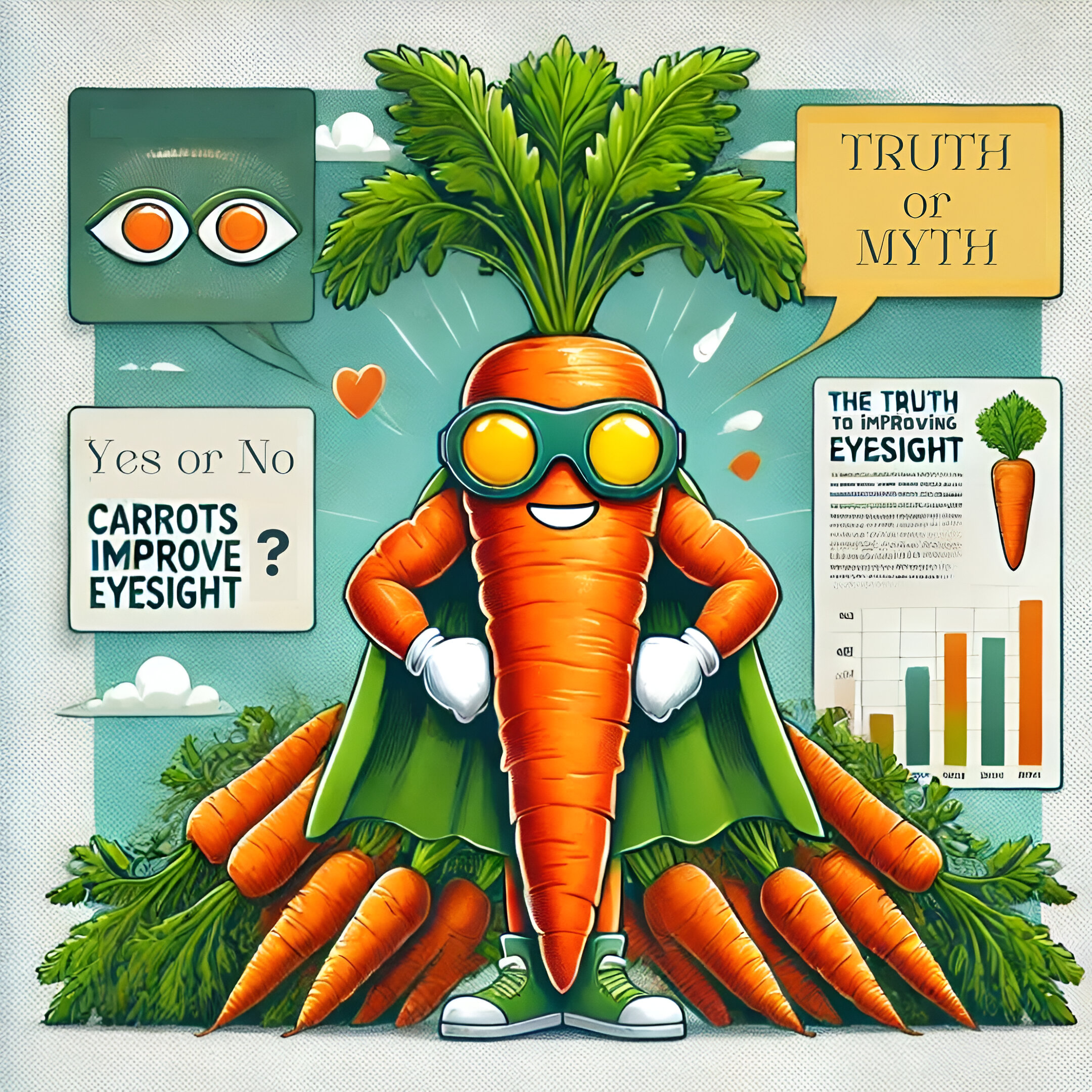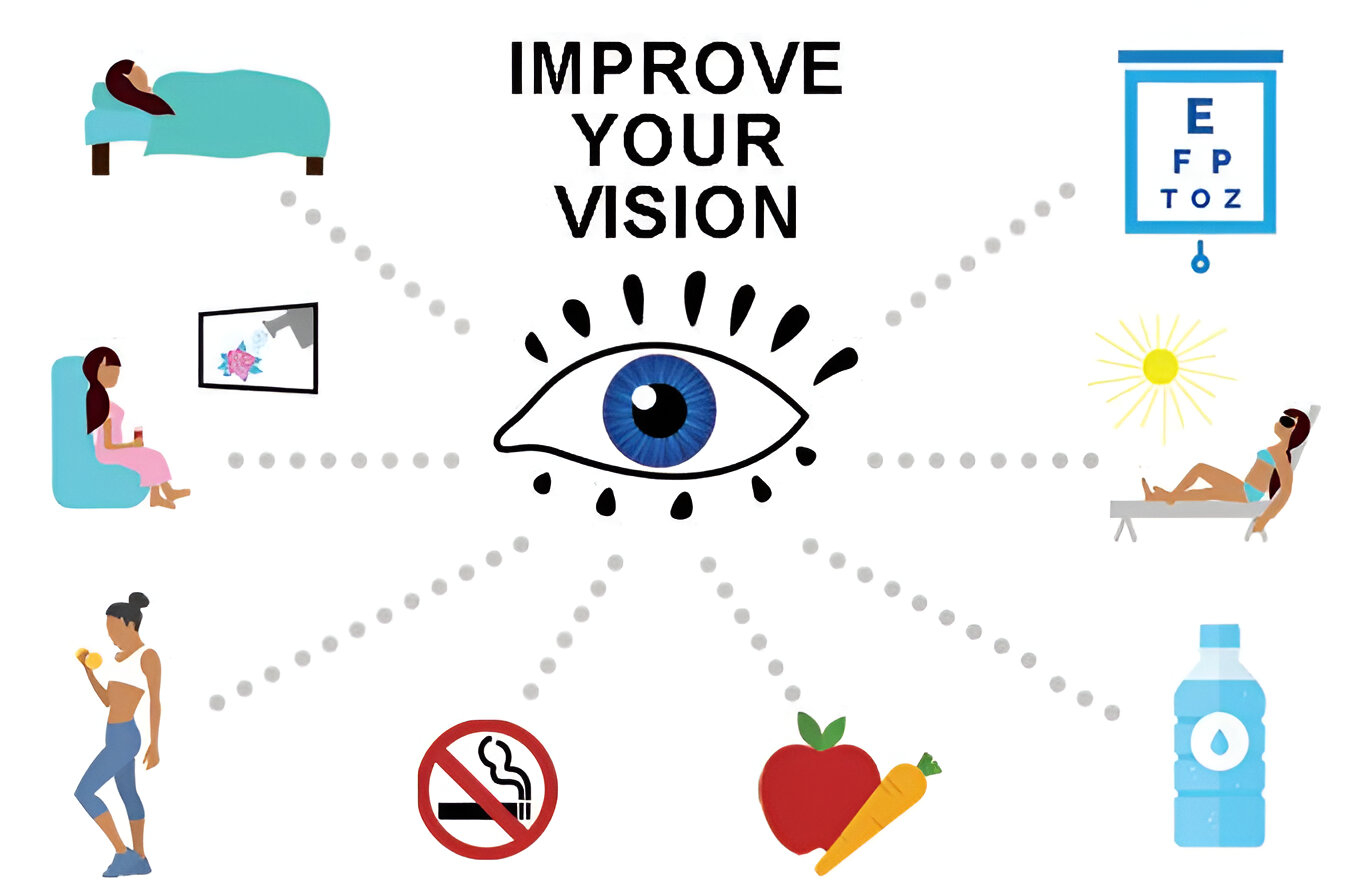
Do Carrots Really Improve Vision? Debunking Eye Myths One by One
We’ve all heard the age-old wisdom: “Eat your carrots, they’re good for your eyes!” While there’s truth buried in this advice, there’s also a whole lot of myth wrapped around it. In the world of optometry, separating eye health facts from fiction is crucial — not just for professionals, but for the public too.
Let’s take a closer look at the carrot claim, explore its surprising origins, and debunk a few other popular eye myths while we’re at it.
The Carrot Myth: Rooted in History
The Truth:
Carrots are rich in beta-carotene, a precursor of vitamin A — which is essential for maintaining healthy vision, particularly night vision. A severe deficiency in vitamin A can lead to night blindness, xerophthalmia, and even permanent vision loss.
 So yes, carrots can support eye health — but they won’t give you superhuman vision or reverse myopia, hyperopia, or astigmatism.
So yes, carrots can support eye health — but they won’t give you superhuman vision or reverse myopia, hyperopia, or astigmatism.
The Wartime Propaganda Twist:
During World War II, the British Royal Air Force spread the story that their pilots’ success at shooting down enemy planes at night was due to eating large amounts of carrots. In reality, they were using radar technology — and the carrot story was a clever cover-up to mislead the enemy.
“It was wartime propaganda — a carrot cover story. But it stuck!”
— Dr. David Hughes, Food Historian
Common Eye Myths — Busted!
1. “Wearing glasses will make your eyesight worse.”
FALSE. Glasses don’t weaken your eyes. They simply help you see more clearly. Not wearing the right prescription can cause eye strain or headaches, but glasses themselves don’t worsen vision.
2. “Reading in dim light ruins your eyesight.”
PARTLY FALSE. Reading in low light can cause temporary eye strain and fatigue, but it won’t lead to permanent damage. Your eyes may feel tired, but they’re not harmed.
3. “If you cross your eyes, they’ll stay that way.”
FALSE. Moving your eyes in unusual ways doesn’t make them stick. However, persistent crossing (strabismus) in children should be evaluated by an eye care professional.
4. “Using screens will ruin your eyes.”
FALSE, but… Screen use won’t cause permanent damage, but it can lead to digital eye strain, dry eyes, and even temporary blurred vision. That’s why the 20-20-20 rule (every 20 minutes, look 20 feet away for 20 seconds) is recommended.
5. “Carrots are the best food for your eyes.”
NOT QUITE. They’re good, but not alone. Other eye-healthy foods include:
-
Leafy greens (rich in lutein and zeaxanthin)
-
Fish (high in omega-3 fatty acids)
-
Eggs, citrus fruits, nuts, and legumes
Vision Is About More Than Diet
Maintaining good vision is a combination of:
-
Proper nutrition
-
Regular eye exams
-
Protecting your eyes from UV and blue light
-
Good hygiene (especially for contact lens users)
-
Managing screen time and lighting conditions
While carrots contribute to a healthy diet, they’re not miracle vegetables. No food alone can cure refractive errors — that’s what glasses, contact lenses, or refractive surgeries are for.
Nature’s Palette: How Carotenoids Color Both Animals and Eye Health
Carotenoids are naturally occurring pigments found in colorful fruits, vegetables, algae, and some marine organisms.
-
-
Beta-carotene (found in carrots, sweet potatoes)
-
Astaxanthin (found in shrimp, krill, and salmon)
-
Canthaxanthin and lutein (found in leafy greens and algae)
-
-
Animals like flamingos, salmon, and shrimp owe their pink or reddish color to a carotenoid-rich diet.
-
Flamingos are born gray — they turn pink by eating algae and crustaceans rich in carotenoids.
-
Similarly, wild salmon get their red-orange flesh from astaxanthin in their food chain.
-
-
Humans also benefit from carotenoids, especially:
-
Beta-carotene, which the body converts into vitamin A, essential for:
-
Night vision
-
Retinal health
-
Preventing xerophthalmia (a severe form of dry eye due to vitamin A deficiency)
-
-
-
Carotenoids act as antioxidants, protecting the eyes from oxidative stress and age-related degeneration.
“Carotenoids are a vivid reminder that what we eat not only fuels us but colors our world — quite literally.”
— Dr. M. Boulton, Vision Researcher
In essence, carotenoids bridge beauty and biology — coloring animals vibrantly while nourishing human vision.
Final Thoughts
The next time someone tells you to eat more carrots for better eyesight, smile and nod — then educate them. Carrots are great, but eye health is about balance, care, and regular checkups.
References
-
West, K.P. Jr. (2002). Extent of vitamin A deficiency among preschool children and women of reproductive age. J Nutr.
-
American Academy of Ophthalmology – Eye Health Myths Debunked
-
British Library – “Carrot Propaganda and the RAF”
-
World Health Organization – Vitamin A deficiency fact sheets



